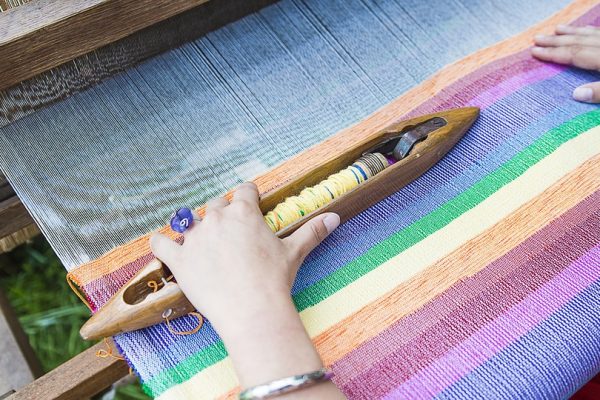The Pro-Environment Advantages of Organic Cotton Over Conventional Cotton
When we are picking out a new dress at Macy’s, we hardly ever wonder where the material was sourced from. However, knowing how the cotton we wear was produced is now more important than ever.
These days, millennials are focused on organic foods, natural cleaning products, and sustainable energy sources. Yet, organic material in fashion is just as important for preserving our environment.
Difference Between Organic and Traditional Cotton
Many of us have read about organic cotton being used to make high-end products in fashion magazines. These clothing, towels, bed linens and other textile products are usually sold at premium prices. However, the cost is not the only difference between organic cotton and traditional cotton products.
Purity Level
The purity of the cotton fiber is determined by how it is picked. Organic cotton is only handpicked which prevents its delicate fibers from being weakened and damaged and therefore, preserves their purity. Ordinary cotton, however, is more in demand and so is harvested by machines to handle the overload. Therefore, cotton fiber often gets damaged during the process, which means purity is not maintained and some portion of the plant is wasted. Apparel made from organic cotton is, therefore, softer than regular cotton.
Environmental Impact
More importantly, however, is the fact that organic cotton is not treated by toxic pesticides, herbicides, and GMOs. These poisonous substances are not just harmful to humans but to the entire ecosystem. So you will be shocked to know that conventional cotton is the dirtiest crop and requires up to 25% of the world’s insecticides and 10% of the world’s pesticides, even though it is only grown in 3% of the area.
Impact on Wildlife
These deadly toxins not just kill insects in the cotton crop, but they also unintentionally kill 67 million birds in the United States every year, reports the U.S. Fish and Wildlife Service. The runoffs from these chemicals also poison open waterways, which contaminate the local fish, farm animals, and other crops and trees. The horrible truth is that when we consume local animals and crops, we too are contaminated by these toxins- traces of these chemicals are also found in breast milk! This can hinder neurological developments in babies as well as cause cancers in adults.
Impact on Farmers
Worldwide, there are over 100 million farmers that grow cotton in 80 countries. Out of these, 77 million workers suffer from pesticide poisoning every year. These result in over 20,000 deaths every year, particularly in developing countries which do not have any protective measures against pesticide toxicity, stated the World Health Organization.
What’s worse, developed countries fare not much better with the U.S. reporting a death toll of 10,000 farmers every year due to cancers related to these chemicals.
In contrast, organic cotton farms are working in compliance with the “decent” work policy, with about 46% reported to be either partially or fully Fairtrade-certified. About 97 percent of these businesses also offer their female workers women-friendly conditions like maternity support, since the majority of cotton pickers tend to be women.
Impact on Water and Soil Sustainability
A single T-shirt made from non-organic cotton can take as much as 2,700 liters of water. Organic cotton requires far less water as it is not treated by pesticides.
Additionally, regular cotton is grown over and over on the same soil, deteriorating the quality of the soil and bleeding it dry of nutrition, leading to bad crops. These crops need even more water, leading to more water wastage.
Organic cotton, on the other hand, is rotated from plot to plot, which means the soil retains its fertility and creates biologically diverse agriculture.
Impact on You
Regular cotton requires a large amount of chemicals dyes, chlorine, and heavy metals to process, which leaves permanent residue in the apparel. When you wear these, you suffer skin allergies like inflammation, rashes, and eczema.
Organic cotton manufacturers use water-based natural dyes and safer products to manufacture their clothing. This means there is no chemical retention in these clothes and they are great for people with sensitive skin, particularly babies.
Several of the world’s biggest brands, including ASOS, H&M, Levi Strauss, and Nike have committed to using organic, sustainable cotton in their clothing lines. Yet organic cotton still accounts for only 1% of all cotton production. We need to do better to save the world we live in.



